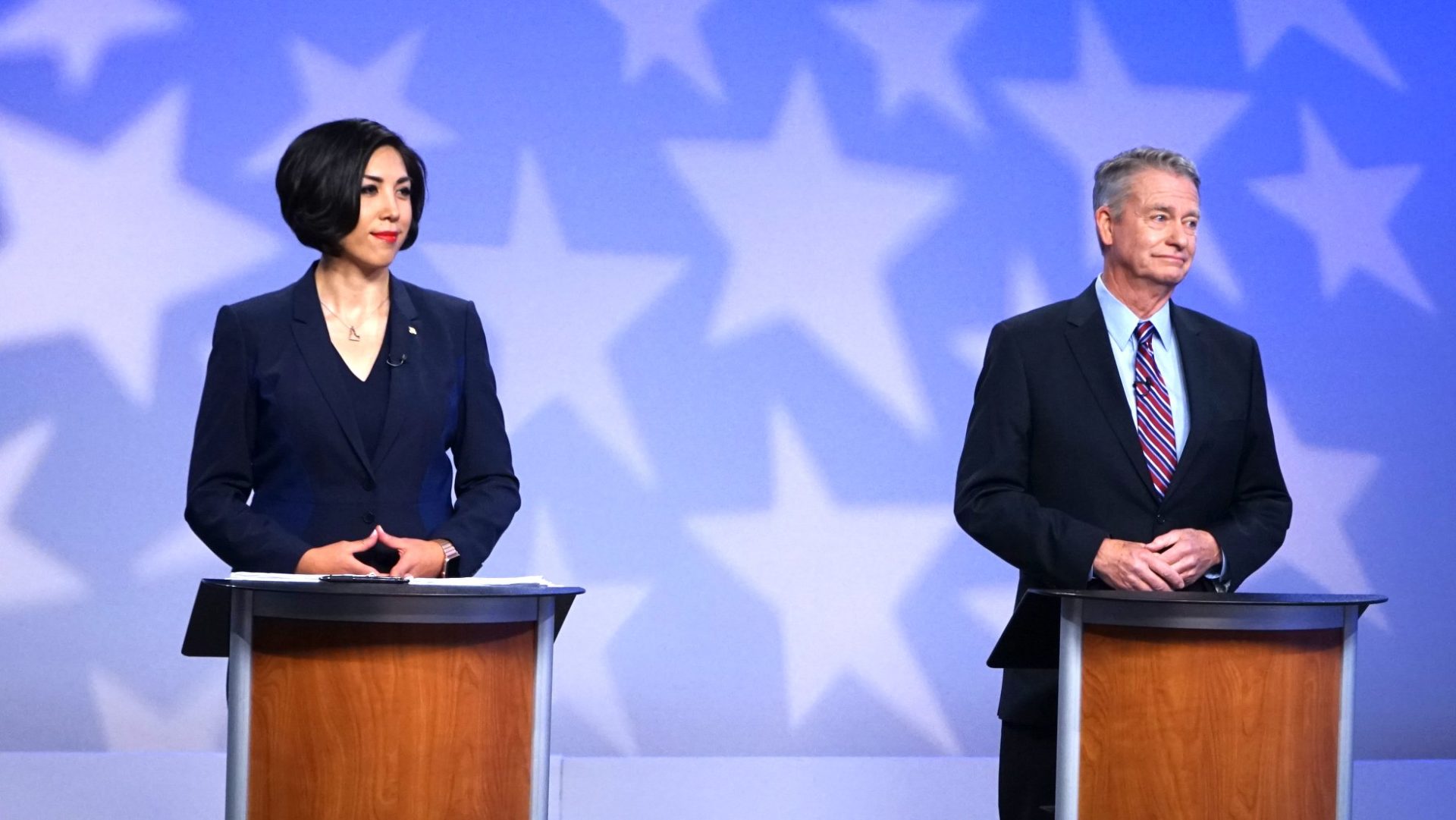As retiring Gov. Butch Otter’s successor of choice, Brad Little touts his experience and seeks to assure voters that the state is heading in the right direction. Paulette Jordan decries what she considers a failed Little-Otter administration.

This recurring theme plays out on many issues — particularly education. During an Oct. 15 televised debate, for example, Little and Jordan spent several tense and chippy minutes sparring over Idaho’s place in national education rankings.
But where do the two gubernatorial candidates stand on education? And how might their approach differ from Otter?
Teacher pay. First things first: The 2019 Legislature will have to decide whether to fund the fifth and final year of the career ladder, a $250 million plan to boost teacher pay. Based on past legislative sessions, the final, $52.5 million installment would seem to have a lot of momentum behind it.
Jordan says the career ladder didn’t go far enough, and hasn’t kept rural and border-community schools from “hemorrhaging” teachers. And while Little bristles at Jordan’s criticisms of teacher salaries — with some facts on his side — he acknowledges the state has unfinished business. He has supported boosting Idaho’s minimum teacher salary to $40,000, up from $35,800.
In something of a departure, the Idaho Education Association is endorsing Little. The state’s largest teacher’s union generally, but does not always, endorse Democrats.
Rural teacher shortages. Look for some movement here, regardless of who wins. While in the Legislature, Jordan co-sponsored a bill to provide student loan forgiveness for rural teachers. Little has proposed a signing bonus for rural teachers.
Pre-K. Otter has long talked about building a “K-through-career” education system, illustrating his indifference to pre-K. Look for that mindset to change somewhat, no matter who wins Tuesday.
Little, who has testified in favor of pre-K at the Statehouse, now speaks of a block grant program. It’s not a full-blown pre-K program — lawmakers have shown no interest even in a state-funded pilot program — but it would allow schools to spend on pre-K, all-day kindergarten, summer reading programs or busing kids to kindergarten.
“I can get my plan through the Legislature,” Little pledged during the Oct. 15 Idaho Public Television debate.
Jordan’s response: “It’s too little, too late, when it comes to your plan.” She favors universal pre-K, which would be an uphill battle in the Legislature.
Either way, a governor could well address early education in the 2019 State of the State Address — for the first time in years.
The 60 percent goal. The next governor will inherit a big goal — and a tall order. The state wants 60 percent of its 25- to 34-year-olds to obtain a college degree or professional certificate. Idaho is stuck at 42 percent.
Part of the problem, says Little, is the economy. With Idaho’s unemployment rate at 2.7 percent, many high school graduates will go to work instead of going to college. During a Monday debate on KTVB in Boise, Little said Idaho still needs to shoot for the 60 percent goal. But he suggested the state needs to reexamine the way it counts certificates towards the benchmark — through a “badging” program that allows students to work their way toward a certificate.
Jordan calls the state’s 42 percent completion rate a “tragic” result of a disinvestment in education. She favors a systemic change — but one that is unlikely to get Idaho to its benchmark by the new 2025 target date. “Education must begin with preschool programs available to all Idaho families,” she said. “Children need to learn how to learn.”
Arming teachers. A clear distinction between the two candidates.
Under current law, districts and charters can choose to allow teachers and staff to carry firearms. Little supports the law, as long as it’s optional. Jordan opposes arming teachers.
If Little is elected, there probably won’t be much of a change on this issue. If Jordan is elected, does she push to repeal a law that is being used in several rural districts and charters? On paper, this would appear to be a tall task in a Second Amendment-friendly Statehouse.
Other budget priorities. Education budgets aren’t set, or financed, in a vacuum. These budgets hinge on other tax and spending decisions.
One decision centers on Idaho’s grocery tax. Otter vetoed a grocery tax repeal in 2017, saying the $80 million cut would jeopardize education funding. Both Little and Jordan say they favor a repeal — although Jordan voted against the repeal when she served in the House.
Then there’s the decision on Medicaid expansion, Proposition Two on Tuesday’s ballot. Jordan supports Proposition Two; Little has repeatedly refused to state his position. However, both candidates have pledged to implement the expansion if it passes. Critics have said the cost of the expansion could cut into funding for K-12 and higher education. Recently, state Rep. Thomas Dayley told Idaho Public Television that the expansion could jeopardize career ladder funding.
For full campaign coverage, with an emphasis on education, head to our elections page.
